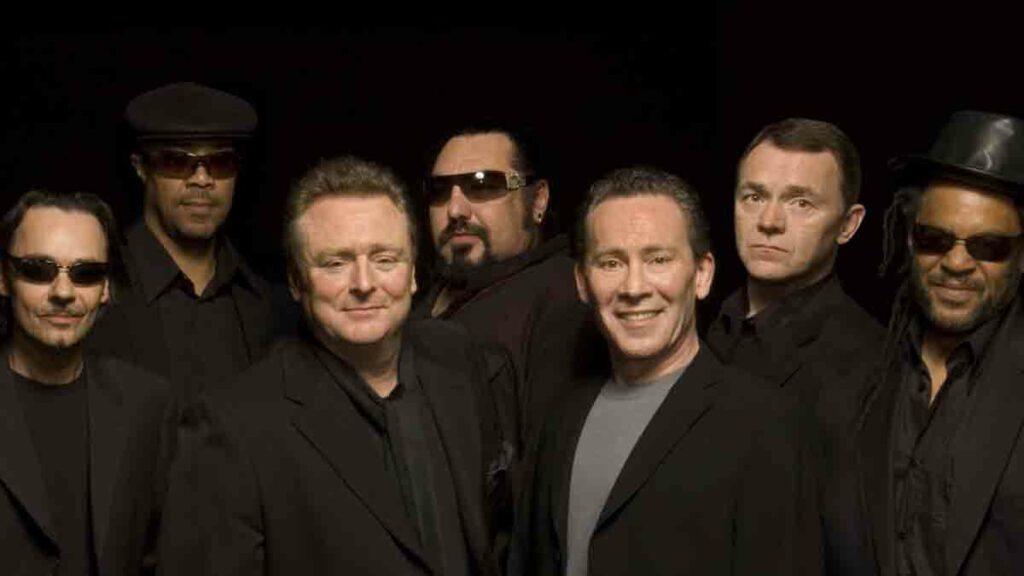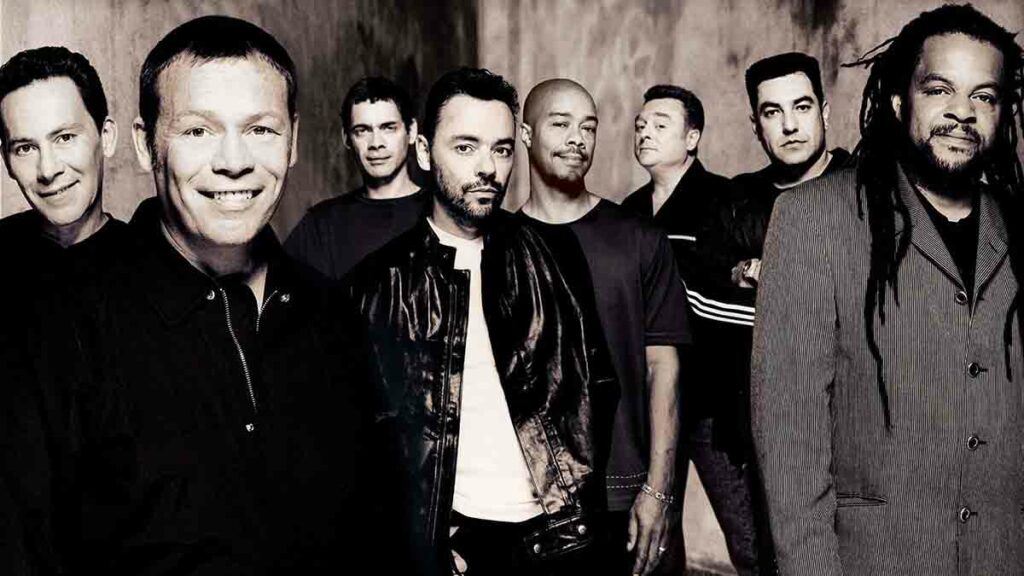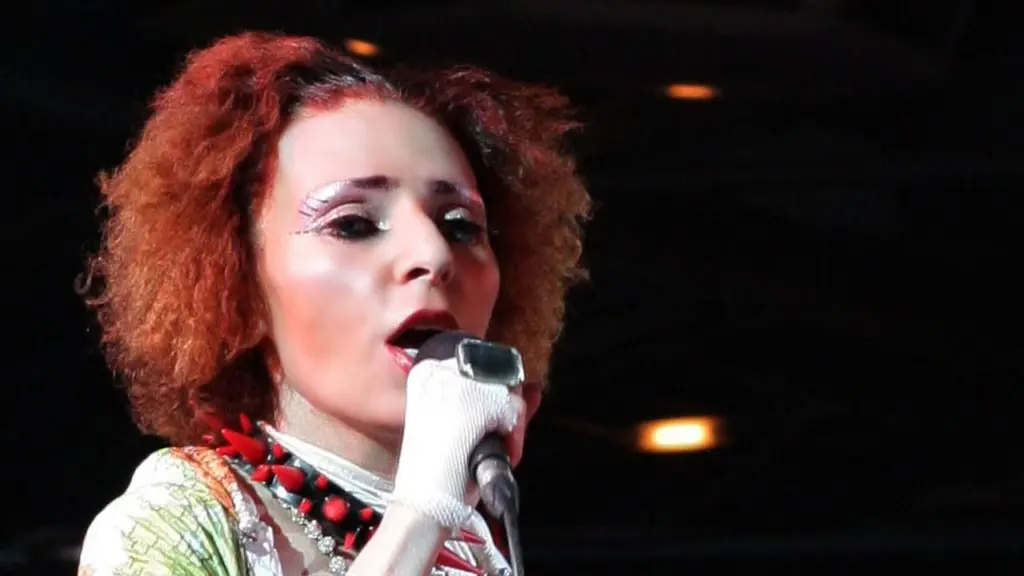When we hear the word reggae, the first performer that comes to mind is, of course, Bob Marley. But even this style guru has not reached the level of success that the British group UB 40 has.
This is eloquently evidenced by the sales of records (over 70 million copies), and positions in the charts, and an incredible number of tours. During their long career, the musicians had to perform in overcrowded concert halls all over the world, including the USSR.
By the way, if you have any questions about the name of the ensemble, then we clarify: it is nothing more than an abbreviation that is affixed to the registration card for receiving unemployment benefits. In English, it looks like this: Unemployment Benefit, Form 40.
The history of the creation of the UB 40 group
All the guys in the team knew each other from school. The initiator of its creation, Brian Travers, saved up money for a saxophone, working as an electrician's apprentice. Having achieved his goal, the guy quit his job, and then invited his friends Jimmy Brown, Earl Faulconer and Eli Campbell to play music together. Having not yet really mastered playing musical instruments, the guys wandered around their hometown and pasted the group's advertising posters everywhere.
Pretty soon, after fruitful rehearsals, the group found a stable composition with a brass section. It sounded strong, organic and gradually acquired an individual sound. The debut performance of an honest company took place at the beginning of 1979 in one of the city pubs, and the local audience reacted more than favorably to the efforts of the guys.
One day, Chrissie Hynde from The Pretenders turned up at their next session. The girl liked the game of provocative musicians so much that she offered to perform with them on the same platform. Of course, UB 40 was supposed to "warm up" the audience.
The solid potential of the "unemployed" was considered not only by Chrissy, the listeners were also hooked by their cool manner of performance. The very first forty-five, released on Graduate Records, reached fourth place in the chart.
In 1980, the first UB 40 album, Signing Off, was released. Interestingly, the material was not recorded in a studio, but within a small apartment in Birmingham. Moreover, in some cases it was necessary to record the music on film in the garden, and therefore on some tracks you can hear the birds singing.
The record reached the second position in the list of albums and gained platinum status. Simple city guys instantly got rich. But for a long time they “wept in a vest” at their fate through their own songwriting.
Musically, the first three albums are "antediluvian" reggae, characteristic of the sound of the old orchestras of the Caribbean region. Well, the texts turned out to be overloaded with acute social topics and criticism of the policies of Margaret Thatcher's cabinet.
UB 40 on takeoff
The guys wanted to develop a successful start in England and overseas. A disc with covers of the band's favorite songs was specially recorded for the States. The record was called Labor of Love (“Labor for Love”). It was released in 1983 and became a turning point in terms of the commercialization of sound.
At the end of the summer of 1986, the album Rat In The Kitchen was released. It raised issues of poverty and unemployment (the name "The Rat in the Kitchen" speaks for itself). The album reached the top 10 of the album charts.

Deservedly considered, if not the best, then one of the best in the band's discography. The composition Sing Our Own Song (“Sing our song with us”) was dedicated to black musicians from South Africa living and working under apartheid. The group traveled to Europe with concerts and even visited the Soviet Union.
In addition, in support of the performances, a disc was released by the Melodiya company under the license of DEP International. The following is noteworthy: at a concert in Luzhniki, the audience was allowed to dance to the music and rhythms of the speakers on stage, which was a novelty for the Soviet audience. In addition, a large percentage of the visitors to the performance were military personnel, and they were not supposed to dance according to their status.
Band world tour
Two years later, the UB 40 ensemble undertook an extensive world tour, performing in Australia, Japan and Latin America.
In the summer of 1988, the "unemployed" were invited to the big show Free Nelson Mandela ("Freedom to Nelson Mandela"), which took place at London's Wembley Stadium. The concert featured many international performers popular at that time, it was watched live by several million viewers around the world, including in the USSR.
In 1990, UB 40 collaborated with singer Robert Palmer on the track I'll Be Your Baby Tonight ("I'll be your baby tonight"). The hit drifted for a long time on the MTV top ten.
The album Promises and Lies (1993) ("Promises and Lies") turned out to be very successful. However, gradually UB 40 slowed down touring and other intensity. Soon the guys came to the decision to take a break from each other, and in return to do solo work.
Vocalist Eli Campbell recorded the album Big Love (“Big Love”) directly in Jamaica, and a little later, with the support of his brother Robin, he took part in the recording of Pat Benton’s hit Baby Come Back (“Baby Come Back”). At the same time, bassist Earl Faulconer began producing new bands.

The latest history of the UB 40 group
In the early XNUMXs, Virgin released a collection of hits by Young Gifted & Black. The collection is complete with an introductory article by guitarist Robin Campbell.
This was followed by the album Homegrown (2003) (“Homegrown”). It featured the song Swing Low, which became the Rugby World Cup anthem.
The 2005 album Who You Fighting For? ("Who Are You Fighting For?") received a Grammy nomination for Best Reggae. On this canvas, the musicians again go into politics, as at the beginning of their careers.
In 2008, there was a rumor that UB 40 intended to replace the former vocalist. However, a rebuttal was received shortly after.
Together with Eli, a disc of 2008 was recorded, then another collection was released, and only on the cover album of 2009, instead of the usual Campbell, a new singer appeared at the microphone stand - Duncan with the same surname (nepotism, however) ...
In the fall of 2018, the legendary British announced the start of an anniversary tour of good old England.



